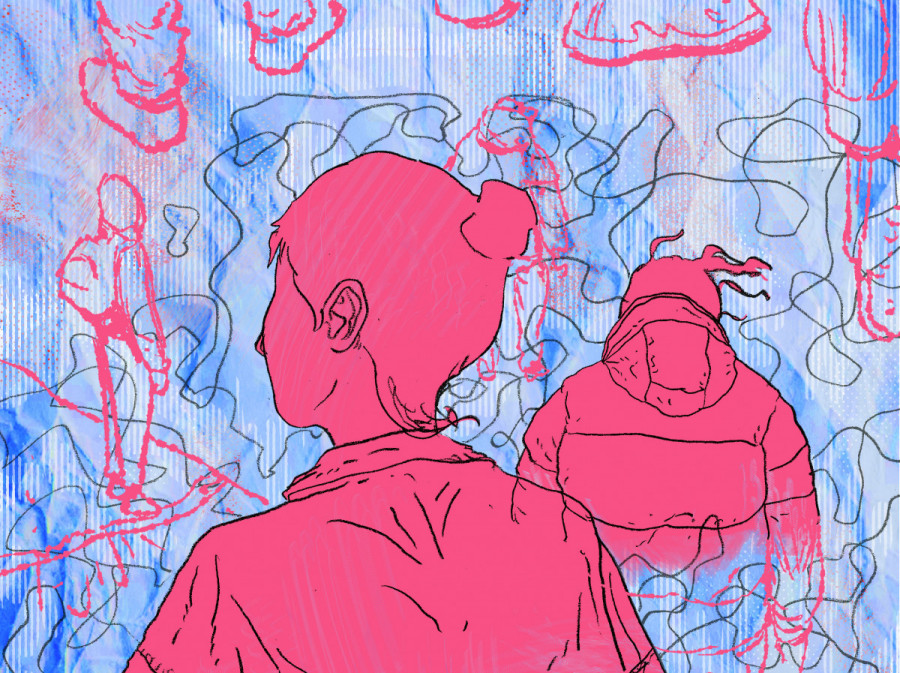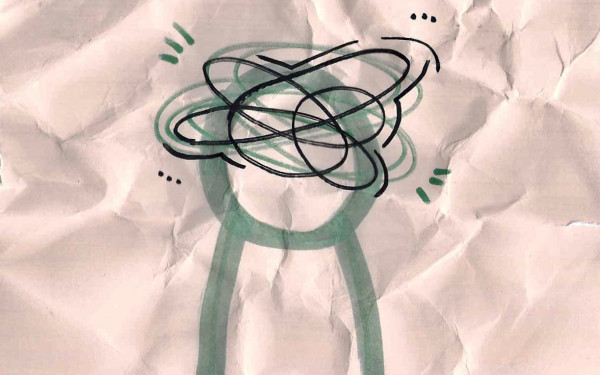Stop stigmatizing me: A neurodivergent woman’s plea for acceptance and understanding
How society’s vilification of autism contributes to low self-esteem among neurodivergent individuals
I was diagnosed with autism spectrum disorder at three years old.
Throughout my early education, I received speech therapy and social skills training to speed up my neurological development and fit in with my peers. While these services helped me throughout the years, I realized how they reflected society’s stigmatization towards autism, which caused me to lose my sense of autonomy, and most importantly, my confidence.
When I was five, I threw a tantrum while my mother practiced on her piano; it felt like pins and needles scraping inside my ears. I dropped to the floor in anguish, screaming like a banshee. My tiny body couldn’t handle a single note coming out of that damn piano. After several incidents of hypersensitivity, my parents enrolled me in special education programs to prepare me for a school environment.
From preschool to elementary school, I was assigned to various social workers, speech therapists, and integration aides to improve my neurological development. Social skills training aimed to help me develop basic social skills in order to communicate with my neurotypical peers, navigate through various social situations, and create meaningful connections. My SST experience consisted of getting pulled out of class during a fun dodgeball game or an arts and crafts activity with my friends, just to sit in a cold, empty classroom reviewing appropriate social behaviours from worksheets with poorly illustrated cartoons.
My SST experience consisted of getting pulled out of class during a fun dodgeball game or an arts and crafts activity with my friends, just to sit in a cold, empty classroom reviewing appropriate social behaviours from worksheets with poorly illustrated cartoons.
These worksheets portrayed what my integration aide deemed as unfit behaviours, such as lacking eye contact in conversations or not following orders. They also portrayed my stims, such as humming to myself and flapping my arms, as unfit behaviours. I had to adjust my actions and emotions to resemble the appropriate mannerisms in my worksheets to make sure my aides didn’t lash out on me. When I asked my integration aide why I had to learn these new behaviours, she responded, “To make people like you.”
Over the years, my integration aides even scolded me during times of distress, making me cautious of how I should express my emotions, as well as reminding me to be nice to the teachers who chastised me in class. Despite my hypersensitivity, speech impediment, and non-verbal behaviour drastically improving, I was left with this lingering question of why I had to change myself so that people would like me.
Although I learned how to initiate a conversation, wait for others to speak, and introduce conversation topics, I eventually became a target for bullying in my first year of high school. I desperately wanted to fit in and be included in school activities, dances, trips, and clubs, but I still felt like I didn’t belong anywhere. Many of my interactions with peers seemed forced and awkward because I was too eager to make friends like the other kids. After being excluded, teased, and spat on, I felt like it was easier to hide than talk to someone.
When I met the person who would become my closest friend in grade 9, I thought I was worthy of making meaningful social connections. We instantly bonded over our internet crushes, insecurities, and personal goals. But, as our friendship grew, so did her malice.
In English class, we had to do a public service announcement project on raising awareness towards certain issues, such as HIV/AIDS, alcohol addiction, or sex trafficking. She learnt about my diagnosis through my mother and did her PSA project on autism because she claimed it was a disease.
My autism diagnosis became a topic of discussion in family emails and faculty meetings. “She’ll never graduate high school.” “Would she be able to get a job?” “Is she ready to live by herself?” As my heart filled with acrimony, memories of SST constantly reminded me to smile at the disingenuous people who visited me during Thanksgiving and passed by me in the hallway.
I wanted to lash out and be honest about my feelings, but I was scared that my reactions would feed into the ableist idea that I am incapable of doing anything for myself if I look too erratic. Bearing this type of negative treatment by those who surround me jams up my brain and makes my body freeze. How was I able to stand up for myself and risk being disliked by people who were supposed to uplift me?
When I asked my integration aide why I had to learn these new behaviours, she responded, “To make people like you.”
My earliest memories are ones of bullying, teasing, and actions of malice from the people in my close circle, all because I have autism. I distanced myself from the autistic community and internalized ableist ideas of my own. I refused to educate myself on my diagnosis because everything I read reminded me of my failure to blend in at school and succeed in other areas of my life. My eyes would fill with tears after reading stories of parents who claimed that autism destroyed their children’s social lives. It felt like being autistic meant being a burden to society and my loved ones.
I compared myself to my little sister and copied her style, because I wanted to look normal just like her. I even created personas of myself to fit different people’s idealized version of me in their imaginations, causing me to lose my identity. I grew up tolerating a world that doesn’t tolerate me, so I reinvented myself to avoid humiliation. Even telling someone that I am autistic could obliterate all the progress I made to redeem my staggering reputation at school.
After everything, I’ve realized that my autism wasn’t responsible for my low self-esteem. It was society’s lack of empathy towards people who are like me that makes me feel this way. The assumption that neurodivergent people are meek, feeble, and incapable of self-worth, creates ambiguity and fear among society. Open-minded people who surround me often don't understand their own stigmatization of disabilities. I’ve heard those closest to me say they would disown their children if they became disabled.
Now that I’m high-functioning, I communicate effectively and act somewhat normal. However, opening up to people about my diagnosis and experiences confuses them because I don’t look or sound austistic. My story and emotions aren't valid enough for people to understand me. I don’t want to give off the impression that I’m an attention-seeker wanting a pity party; I just want people to understand me and to re-evaluate their behaviour towards people with visible and non-visible disabilities.
I managed to graduate high school, get into my dream university, and be offered opportunities that go against the ableist barriers that were held against me. I managed to cut off ignorant friends from my life and surround myself with genuine people. I still walk around my house on my tippy-toes, overreact over slight changes in my routine, and get too carried away in my conversations, but I wouldn’t sacrifice my individuality for society’s intolerance towards me or my diagnosis. My autism makes me think more analytically and creatively, helping me approach situations with great curiosity.
The stigmatization of autism obliterated my confidence because of the pressure to fit in and endure intolerable people who constantly remind me that I won’t be good enough. Thankfully, I am beyond blessed to have a supportive family who loves me unconditionally and finds potential in my future, no matter what people say. The lack of education and compassion further drives the stigmatization of neurodivergent individuals like me, where I constantly have to prove to everyone that I’m worthy of respect based on the way I interact with others. I can’t afford to be trapped in a continuous cycle of self-hate and guilt just for being different. I love my autism because it taught me how to remain strong and authentic in spite of society’s lingering othering of people who are born differently.
This article originally appeared in The Body Issue, published February 1, 2022.






_(1)_600_375_s_c1.png)
